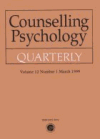
Intermarried couples, mental health and psychosocial well-being: Negotiating mixedness in the Danish context of ‘homogeneity’
Intermarried couples in Denmark face a range of psychosocial challenges in the context of dominant discourses of homogeneity coexisting with ethnic diversity. This article deals with the couples’ managing of everyday life, mental health, well-being and implications for health
promotion and counselling. The participants in this qualitative study (n = 10) are persons in mixed relationships where one partner is from South Asia and the other a native Dane, forming visibly ethnically different households [Phoenix, A. (2011). Psychosocial intersections:
Contextualising the accounts of adults who grew up in visibly ethnically different households. In Lutz, V., & L. Supik (Eds.), Framing intersectionality: Debates on a multi-faceted concept in gender studies. Surrey: Ashgate]. The analysis indicates that internal, personal and family
aspects, such as realistic plans, mixing everyday practices and focussing on the fun part, are in interplay with external aspects such as formal and informal acceptance of the intermarriage in society, dominant gender roles, recognition and inclusion for the mixed couples. Recognition of the
significance of these aspects and practices is important for promoting positive mental health and well-being over the life course.
Keywords: inclusive counselling practice; intermarriage; intersectionality; life course perspective; societal homogeneity
Document Type: Research Article
Affiliations: Department of Psychology & Educational Studies,Universitetsvej 1, Roskilde University, 4000 Roskilde, Denmark
Publication date: 01 June 2012
- Editorial Board
- Information for Authors
- Subscribe to this Title
- Ingenta Connect is not responsible for the content or availability of external websites
- Access Key
- Free content
- Partial Free content
- New content
- Open access content
- Partial Open access content
- Subscribed content
- Partial Subscribed content
- Free trial content